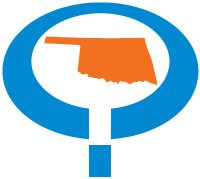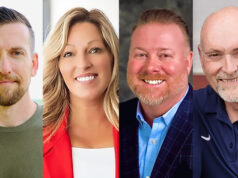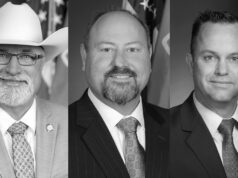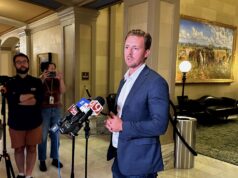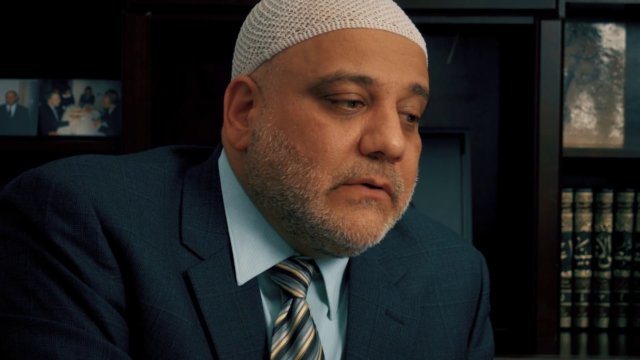

(Editor’s note: This story was authored by Trevor Brown of Oklahoma Watch and appears here in accordance with the non-profit journalism organization’s republishing terms.)
Faith leaders are looking for answers after a Republican legislator issued guidelines that could block a large swath of the state’s religious community from leading lawmakers in prayers that kick off each day of the legislative session.
Rep. Chuck Strohm (R-Jenks) who is the state House of Representative’s chaplain coordinator, sent a letter at the beginning of the year asking that legislators only nominate a faith leader from “the representative’s own place of worship” to be the House’s Chaplain of the Week or Chaplain of the Day.
Strohm’s letter, obtained by Oklahoma Watch and embedded in full at the end of this article, states the program is “… not a platform for personal agendas, but an opportunity to ask for God’s wisdom and to speak blessing and hope over those who are often overwhelmed by the many voices that are converging upon them.”
The apparent restriction on who may lead the prayer during the daily address has prompted concerns that many religions would be left out since members of the Christian faith dominate the House.
Shannon Fleck, director of community engagement for the Oklahoma Conference of Churches, which represents 600,000 members from Protestant, Roman Catholic, Episcopal and historically black churches, said the policy is troubling because she is not aware of any Muslim or Jewish lawmakers.
In a Feb. 1 letter to Strohm, she wrote that many Christian denominations also have little or no representation:
By limiting legislators to pull from their individual faith traditions for legislative chaplains, the opportunity has been stripped from our elected officials to have any exposure to the vast and beautiful religious practices that make up this great state. Additionally, those who practice religions other than the majority in Oklahoma are being told their voice does not matter, their religion is less important, and they are being actively and succinctly shut out.
Fleck said it is possible that the policy – one she wasn’t aware of previously – was in response to Rep. Jason Dunnington (D-OKC) nominating Islamic Society of Greater Oklahoma City Imam Imad Enchassi to be Chaplain of the Day last year.
Fleck said she has heard “various excuses” why Enchassi’s chaplaincy request was not approved, but there hasn’t been an official response.
Enchassi said he was informed he was nominated in January 2017 to be the daily chaplain and didn’t learn he was rejected until months later. He said he received “zero answers” from Strohm regarding why he was rejected, leading him to believe it was because of his faith.
Enchassi said he planned to not go public with his story but then he found out about the letter Strohm sent asking that representatives’ nominations come from their places of worship.
“I checked with all the rabbis and there are zero Jewish representatives in this building (the State Capitol) and, of course, we have no Muslim representation in this building – or Buddhists either,” he said following a sermon on tolerance and discrimination during Friday’s Interfaith Jummah Prayer Day at the Capitol.
“Do you know what that means? It means we are not welcome,” he said.
Calls to Dunnington, Strohm and House Speaker Charles McCall (R-Atoka) were not returned Friday.
Rep. George Young (D-OKC), who was the senior pastor at Holy Temple Baptist Church, said he didn’t find out about Strohm’s guidance until last week.
Young said he was disturbed by a policy that would effectively block many faiths from speaking to the Legislature and called it “divisive.”
But Young said he plans to see how serious Strohm is about the guidelines as he intends to nominate Enchassi to be Chaplain of the Day this session.
“And if he turns me down, he’s going to tell me why,” Young said.
House rules state that the chaplain must attend the start of each day’s session of the House and open with a prayer. Chaplains also are given up to five minutes during the Thursday session to deliver remarks.
Strohm’s letter explaining the program says chaplain requests will be processed as they are received and “scheduling and participation will be based on a first come, first serve basis.” He also wrote that requests for exceptions to the guidelines will be “handled on an individual basis.”
The Rev. Lori Walke, who is on the board of directors of the Interfaith Alliance Foundation of Oklahoma, said even a suggested policy can have a chilling effect on the voices lawmakers hear.
Walke, of the Mayflower Congregational Church in Oklahoma City, said she has concerns whether it’s proper for religious leaders of any sect leading a legislative body in prayer to start the session in the first place. But she said if the program exists, it should be inclusive as possible.
“Right now they are really limiting what voices can be heard, even among Christians,” she said. “But there are many voices and faiths that deserve to be heard.”
https://nondoc.com/wp-content/uploads/2018/02/Chaplain-Program-Introduction-Letter-2018.pdf” download=”all”]







